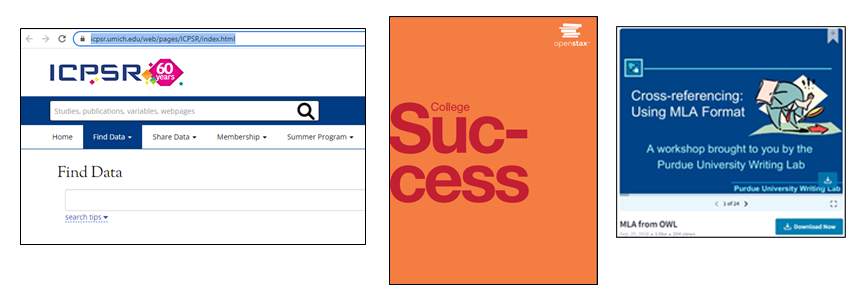Source: Elder, A. (n.d.). An introduction to Open Educational Resources [YouTube Recording]. https://youtu.be/NtJmakm1-zc. Permission by CC BY 4.0.
Open Educational Resources (OER) are teaching and learning materials that can be freely used or reused at no cost. The purpose of OER is to enhance learning through the use of curated materials that are readily or openly available to students.
OER can be free or available at a lower cost than commercial textbooks, assisting in college or textbook affordability initiatives. Instructors can select a variety of materials such as multimedia to either substitute for or supplement a textbook. Students can learn from a variety of materials and in different formats.
OER uses Creative Commons (CC) licenses of various types that permit sharing and degrees of customization and use.
Why use OER?
Many instructors use OER to curate a variety of learning materials. Some studies suggest OER makes higher education more accessible and affordable, and supports student success and persistence. See Why Use OER? for more details.
examples of oer and their use

Sources: Baldwin, A., 2022; Inter-university Consortium for Political and Social Research, 2022; Proff, 2018.
OER can include any of the following types of learning materials with Creative Commons licenses:
- Textbooks, journals and other published works
- Images: art, photography, clip art
- Videos and multimedia (sound recordings, podcasts)
- Primary sources
- Learning objects: simulations, slides/ PowerPoints, practice problems, tests, or quizzes
- Web pages
- Data or data sets: from STEM, business or other fields of research
Here are some ways OER have been adopted as course materials:
- Assigned readings
- Supplements to textbooks or lectures
- Openly available (and shareable) materials
- Illustrative examples
- Mash-up or combine with other OER
See the OER Research Guide for evaluating them and better practices for their use.
More Information
- OER By The Numbers: A graph on the adoption of OER via Follett Textbook Access Program.
- OER Research Guide: Provides additional information about OER, their evaluation, how to find them, and their uses.
- Find and Adopt OER: A list of websites with various types of freely available learning materials and textbooks.
- Creative Commons (CC) Research Guide: An introduction to CC licenses, their terms of use, and where to locate materials.
- Library-Licensed Materials: The FAU Libraries can assist with identifying books available as eBooks and other resources as instructional materials.
- Authoring and Licensing: Learn about platforms available for creating your own OER materials and how to utilize Creative Commons licenses to add terms of use to your work.
- Library Liaisons: Get help finding OER from your college or departmental library liaison.
Image Citations:
Baldwin, A. (2020). College success [Ebook]. OpenStax. https://openstax.org/details/books/college-success
Inter-university Consortium for Political and Social Research (2022). ICPSR: About [Webpage]. The University of Michigan. https://www.icpsr.umich.edu/web/pages/about/
Proff, J. (2018). Cross-referencing: Using MLA format [SlideShare presentation]. https://www.slideshare.net/JasonProff/mla-from-owl-116484624
 FLORIDA ATLANTIC UNIVERSITY
FLORIDA ATLANTIC UNIVERSITY
